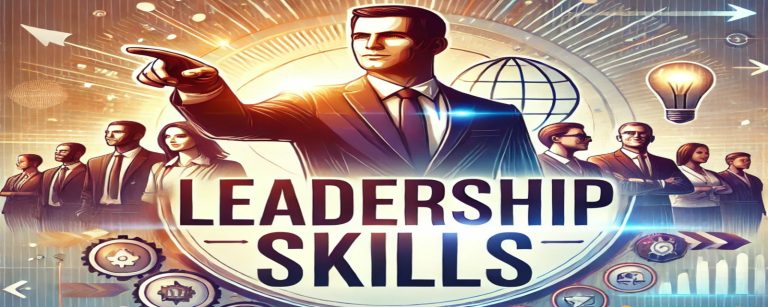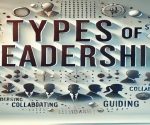Leadership is probably the most essential characteristic that defines success for either an individual or an organization. Leadership skills represent those abilities and characteristics that can empower a person to lead and guide a group of people in such a manner that they move in the direction of achieving the desired goal. Leadership skills include effective communication, decision-making, problem-solving, empathy, and the ability to motivate others. Whether in work, education, or everyday life, leadership skills are critical to personal and professional success. Acquiring this knowledge can empower individuals to bring about positive change and build successful teams.
What is Leadership Skills?
Leadership is the interpersonal, strategic, and problem-solving skills necessary for guiding and influencing others in getting things done. A good leader inspires the team through crystallized goals and a clear vision of success. The method of communication, active listening, and trust that he establishes through his actions and decisions distinguish him as a leader, not an ordinary one.
Key qualities of leadership include empathy, decision-making, and problem-solving. The best leaders are sensitive to the needs of their team and respond appropriately to problems. They make sensible decisions even under pressure and settle conflicts fast. Such qualities help leaders steer their teams towards the accomplishment of common goals and also keep a pleasant working atmosphere.
Communication
Good leaders are candid with their thoughts and listen to others actively. They communicate in simple language, so people understand the message. A solid communication process fosters trust, unravels misunderstandings, and keeps people in sync to ensure the team moves forward together for specific achievements.
Decision making
Good decisions under pressure are expected from leaders. They analyze information, weigh options, and make the best decision. Strong decision-making skills help leaders guide their teams with confidence while minimizing risks and achieving desired results.
Getting empathy
Empathy enables the leader to understand how his or her team members feel and what they need. Leaders show caring and consideration by making the work environment supportive, thereby strengthening relationships and motivating the team to do better.
Problem-solving
Great leaders identify the problems and implement solutions right away. They keep quiet and solve problems rather than talking about them. Strong problem-solving skills maintain team productivity and overcome obstacles with ease.
Visual design
Visionary leaders set clear goals and motivate their teams to work toward a shared purpose. They come up with strategies for long-term success by anticipating future trends. Having a clear vision helps the leader innovate and guide his or her team in the right direction.
Flexibility
Leaders should be resilient in such situations and adapt to changes when faced with different circumstances and awkwardness. It helps them to keep things within their perspectives, even in critical periods; hence, flexibility helps maintain teams as resilient even during critical times.
Building teams
Effective leaders achieve harmony and cooperation with their members. They foster trust, celebrate victories, and work to resolve problems promptly. Their excellent team building helps them achieve a positive atmosphere where everyone has value and contributes towards the job.
How to Become a Better Leader?
Becoming a better leader requires consistent self-improvement and practice. Below are strategies to help you enhance your leadership skills.
- Improve Communication Skills: Listen Actively: Pay attention to your team’s concerns and ideas. Be Clear: Convey your expectations and goals in simple terms. Practice Non-Verbal Communication: Your tone and body language matter as much as words.
- Develop Emotional Intelligence (EQ): Emotional intelligence plays a crucial role in leadership. To improve EQ: Practice self-awareness by identifying your emotions. Learn to manage stress effectively. Empathize with others to strengthen team bonds.
- Enhance Decision-Making Abilities: To make better decisions: Gather all necessary information before deciding. Weigh the pros and cons of each option. Remain calm, even under pressure, to think rationally.
- Build Confidence and Resilience: Confidence and resilience help leaders face challenges head-on. Take responsibility for your actions. Learn from failures and use them as stepping stones for success. Focus on your strengths and use them to inspire others.
- Learn to Delegate Effectively: No leader can do everything alone. Delegating tasks ensures efficiency. Match tasks to your team’s strengths and skills. Trust your team to complete tasks without micromanaging. Provide support and guidance when needed.
- Continuous Learning and Adaptability: Leadership is not static. Stay open to new ideas and: Attend leadership workshops and training programs. Read books on leadership and personal growth. Adapt your leadership style based on the situation.
Importance of Leadership Skills
Leadership skills are vital for personal growth and the success of any organization. Here’s why they matter:
- Builds Strong Teams: Effective leaders inspire teamwork and collaboration. They foster trust among team members, which leads to higher productivity.
- Improves Decision-Making: Leaders analyze situations and make informed decisions that benefit the team. They solve problems efficiently and ensure resources are used effectively.
- Drives Innovation and Growth: Leaders encourage creativity and innovation within teams. They set challenging goals that push individuals to grow.
- Enhances Communication: Good leaders bridge communication gaps between team members and management. This prevents misunderstandings and promotes transparency.
- Promotes Personal Development: By leading, individuals learn to manage time, resolve conflicts, and build relationships. Leadership skills boost confidence and self-esteem, which are essential for personal growth.
Leadership Skills FAQs
1. Definition of leadership skills and what does the term leadership skills mean?
Leadership skills are the ability to guide and influence others. The abilities include communication, decision-making, empathy, and problem-solving.
2. How can I become a leader while in school?
Developing leadership skills can be achieved through group projects, volunteer work in leadership positions, joining clubs, and refining communication and decision-making skills.
3. Why are leadership skills important in the workplace?
Leadership skills enhance teamwork, better decision-making, innovation, and a good work environment.
4. Is there a difference between whether leadership skills can be learned or innate?
Leadership skills can be developed through experience, training, and practice. Some individuals may have the natural ability, but with a little effort, everyone can develop.
5. What are examples of leadership styles?
Transformational, democratic, autocratic, servant and laissez-faire are some examples of leadership styles. Different situations and team dynamics call for different styles.


